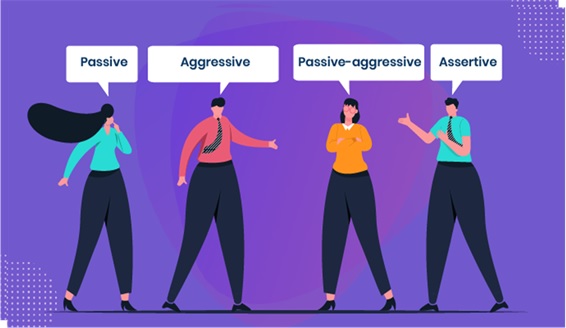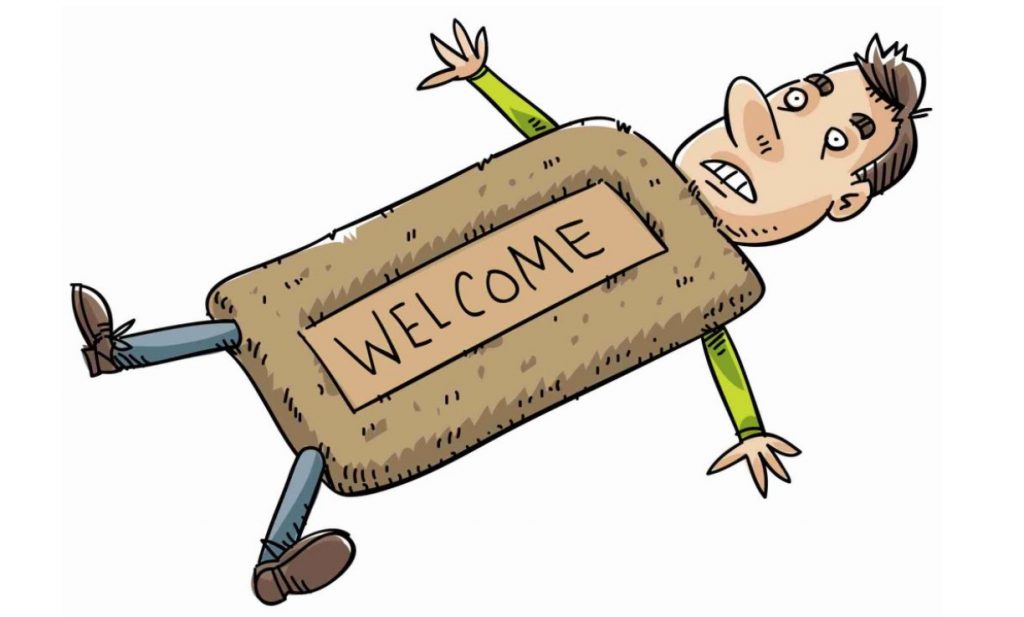Building meaningful relations at work and in personal life is directly related with how we navigate through difficult conversations which improves the quality of our relationships and fosters connect. Every individual has their unique communication style which is a byproduct of various factors such as personality, experiences, mental conditioning at conscious and subconscious level and thought process. Effective communication style can ensure harmonious relationships whereas poor communication can completely mar personal relations as well as career prospects. Therefore it’s pertinent to choose communication style to survive and thrive with dignity, self esteem and work in sync with each other to gain mutual respect.

Following are the communication styles:
Passive style: Passive style communicators always give precedence to other’s needs and rights over their own. They are indirect, inhibited, self denying, blaming and apologetic. They have difficulty making eye contact and have usually slouched posture. They have the inability to say no to the other person. They let themselves treat as doormats which results in frustration, pent up emotions and at times depression and anxiety affecting their mental health.
Language of passive communicators: “What I think doesn’t matter” “I don’t really have an opinion on this”

Aggressive style: People with aggressive style of communication tend to dominate and fail to listen to others. They talk rudely, authoritatively and fail to listen to others. They point fingers at others and stare intensely. Their attitude is always to focus on their interests and concerns by showing my way or highway attitude.
Language of aggressive communicators: “I am never wrong” “Your opinion doesn’t matter”

Passive- aggressive style: People having passive-aggressive communication style are indirectly aggressive, devious, sarcastic, unreliable, complaining, sulking, patronizing, gossipy and double faced. They suppress their emotions and later on turn vindictive. In organizations and personal lives such people are highly dangerous. Outwardly they appear sweet but leave no stone unturned to take revenge through indirect means.
Language of passive- aggressive communicators: “I don’t care but someone else might” “We can do this your way but I don’t think it’s going to work.”
Assertive style: People with assertive style of communication value their needs and interests as well as others needs and interests. They are calm but firm and maintain eye contact with others. Assertive communication style is rooted on mutual respects and interests. This style of communication is the most effective of all and leads to personal and professional success.
Language of assertive communicators: “What are all of our options here?” “Even though we don’t agree I respect your opinion.”
How to deal with different style of communicators:
Passive style: It is important to give them space to articulate their opinions, needs and not dismiss their ideas instantly. Engaging with them on one and one interactions and asking open minded questions is also the effective way of dealing with passive communicators.
Aggressive style: The best way to deal with the aggressive communicators is not to return their aggression but explain to them why their behavior is unacceptable by streamlining their conversation. Some advice can also be given on how to tone down their aggression.
Passive-aggressive: The best way to deal with passive aggressive communicators is to create an environment where they don’t feel under appreciated. It is important to set boundaries with them and stay calm and best possible way is to speak to them privately to understand their behavior.
Assertive style: while interacting with assertive people one should actively listen look alert and don’t get distracted. One should try not interrupting them and using appropriate body language.
Thus it is important to identify different communication styles for improved self awareness and stronger soft skills to leverage the potential.
Centre for Soft Skills of Sushant University, one of the top private universities of India provides such training sessions to unleash a refined and better version of one self and grooms for holistic life.
Dr. Indu Prabha Pathak
Assistant Professor
Centre for Soft Skills
